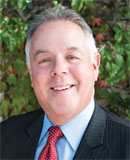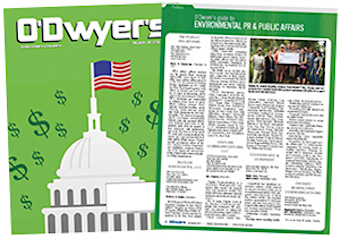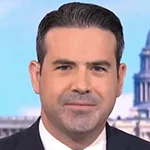It could be argued that Donald Trump is continuing to campaign after the election is over. His polarizing presidency so far can be characterized by a delirious ambition to ensure his plans are promptly put into action without adopting the due diligence to surpass the checks and balances that prevent mere campaign promises from being codified into law.
Already Trump has issued a dizzying barrage of executive orders that have sent even the most rabid political buffs racing to catch up. In the two weeks since taking office, he’s signed executive actions to build a wall along the US-Mexico border, enacted a temporary ban on refugees and travelers from seven majority-Muslim nations, revived the Keystone XL pipeline, withdrawn the U.S. from Trans-Pacific Partnership negotiations, mandated limits on federal regulations and rolled back requirements for the Affordable Care Act.
|
|
Similarly, Trump recently made somewhat good on his oft-repeated campaign pledge to “drain the swamp” in Washington, passing rules ostensibly meant to barricade that “revolving door” whereby public servants and special interests intermingle. On January 28 he signed an executive order prohibiting branch appointees from lobbying the agency at which they were stationed for a period of five years after leaving their posts. Most notably, he also prohibited administration officials from ever lobbying the U.S. on behalf of a foreign government.
Both measures could be seen as a potential disincentive to would-be lobbyists, and can also be interpreted as an extension of the anti-lobbying rules enacted by President Obama upon his appointment to office in 2009. Trump also preserved Obama’s rule for incoming executive administration officials, which required new appointees to sign an ethics pledge that bans them from working on issues they lobbied on during the last two years.
However, Trump’s executive action actually eases some of the lobbying restrictions Obama put into place, notably, the former President’s controversial rule that lobbyists could not join any agencies they’d lobbied in the last two years. That rule is now gone. Trump also removed a key provision requiring the administration to disclose, through annual reports, how the executive branch is enforcing its own lobbying rules.
According to Craig Holman, Ph.D., a government affairs lobbyist for non-profit consumer rights advocacy group Public Citizen, this calls transparency into question, as it makes it very difficult for us to know how many waivers to his lobbying rules Trump will sign for incoming officials.
Holman also said Trump’s lobbying restrictions ultimately aren’t that meaningful when it comes to outgoing administration officials, because it merely makes exceptions to what they can lobby on, which isn’t particularly restrictive.
“Overall, it’s really not a big deal for the lobbying profession,” Holman, said. “I think the foreign ban element is a bit more substantive than the five-year ban, and [the executive order] has one very positive element in that it preserves the core of Obama’s executive order for incoming executive administration officials, which is what made Obama’s administration scandal free. It has a good conflict of interest element, but when it comes to actually affecting the lobbying industry, it does quite little.”
 Gadi Dechter Gadi Dechter |
“It’s certainly not more onerous than Obama’s rules. If anything, it’s less restrictive,” said Gadi Dechter, who runs APCO Worldwide’s public affairs practice in D.C.
Dechter, a former senior advisor to the National Security Council and National Economic Council in the Obama administration, said concerns about revolving doors and suspicions regarding the lobbying industry have always been around. In reality, however, there’s a trade-off at play.
“You can restrict people from serving in government and maybe you can reduce potential interest, but I think government is better served when it has access to information and when the people advising others on how to make policy are experts,” Dechter said.
It isn’t the first time that Trump has scaled back on regulatory promises. Another refrain he made during the election campaign was to battle the rising costs of prescription drugs. Trump planned to address the problem by allowing Medicare to directly negotiate drug prices. He now appears to have walked back on that pledge as well; during a late January meeting with PhRMA lobbyists, Trump referred to the idea as a form of “price fixing.” He now said he wants to lower taxes for drug companies instead.
“There’s a lot of uncertainly regarding what direction things are taking. It seems like this administration is flying by the seat of its pants and just making it up as they go along, which is creating a great deal of uncertainty for businesses and public policy,” said Hal Dash, chairman and CEO of Los Angeles-based public affairs firm Cerrell Associates. “There’s concern across the board. Virtually every department, from the Health and Human Services department to the Department of Education is wondering what’s going to get undone, and what they can and can’t do. Any lobbyist in the healthcare industry is scratching their heads over what’s going to happen with Obamacare. They’re almost freaking out.”
 Hal Dash Hal Dash |
Regardless of the uncertainty, Dash said the anecdotal concerns he’s heard from clients and colleagues may actually result in an increased demand for public affairs services, be it in K Street firms adding staff in a bid to accommodate this new landscape, or at PR firms, which aren’t affected by the latest wave of lobbying regulations and may now see a growth industry in setting up a public affairs practice. Political TV ad spends have also been a boon, as evidenced by the millions conservative groups have recently poured into campaigns to help Judge Gorsuch get confirmed to the Supreme Court.
The general consensus is that the Trump administration is a pro business environment, and we might safely predict an easing of regulations that, on the surface, will be beneficial for the private sector. Not all regulations are made equal, however; what may be helpful for one industry can increase the cost of business for others.
“This election has created an explosion in demand from clients that are interested in gaining insight into what’s happening in Washington and how to constructively engage the administration and manage stakeholders across the spectrum while protecting themselves from risk,” Dechter said. “Some of them are energized about the administration and others are feeling alienated by it. There are always going to be some customers, suppliers and business partners who have different reactions — that’s why it’s important to have a seat at the table, so that when things change you can make sure your perspective is reflected in the regulations. It’s all created an enormous amount of demand for the advice and types of services we offer and we don’t expect that to diminish anytime soon.”



 Husch Blackwell Strategies has added FleishmanHillard alum Michael Slatin as a principal in its public affairs group.
Husch Blackwell Strategies has added FleishmanHillard alum Michael Slatin as a principal in its public affairs group. Rory Cooper, a veteran Republican operative and policy specialist, has joined Teneo’s Washington office as senior managing director in its strategy & communications practice.
Rory Cooper, a veteran Republican operative and policy specialist, has joined Teneo’s Washington office as senior managing director in its strategy & communications practice. Brian Fallon, who served as national press secretary for Hillary Clinton’s 2016 presidential run, is signing on next month as Vice President’s Kamala Harris’ campaign communications director.
Brian Fallon, who served as national press secretary for Hillary Clinton’s 2016 presidential run, is signing on next month as Vice President’s Kamala Harris’ campaign communications director. TikTok is nothing more than a Chinese propaganda tool that poses “a grave threat to America’s national security and, in particular, impressionable children and young adults,” say two Congressmen who want the platform registered as a foreign agent.
TikTok is nothing more than a Chinese propaganda tool that poses “a grave threat to America’s national security and, in particular, impressionable children and young adults,” say two Congressmen who want the platform registered as a foreign agent. Public Strategies Washington has added Abbie Sorrendino, a former aide to now Senate Majority Leader Chuck Schumer.
Public Strategies Washington has added Abbie Sorrendino, a former aide to now Senate Majority Leader Chuck Schumer.


 Have a comment? Send it to
Have a comment? Send it to 
No comments have been submitted for this story yet.